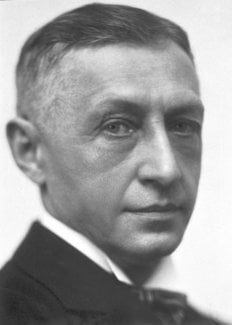Ivan Bunin
Biographical

I come from an old and noble house that has given to Russia a good many illustrious persons in politics as well as in the arts, among whom two poets of the early nineteenth century stand out in particular: Anna Búnina and Vasíly Zhukóvsky, one of the great names in Russian literature, the son of Athanase Bunin and the Turk Salma.
All my ancestors had close ties with the soil and the people: they were country gentlemen. My parents were no exception. They owned estates in Central Russia, in those fertile steppes in which the ancient Muscovite czars had settled colonists from all over the country for their protection against Tartar invasions from the South. That is why in that region there developed the richest of all Russian dialects, and almost all of our great writers from Turgenev to Leo Tolstoy have come from there.
I was born in Vorónezh in 1870; my childhood and youth were spent almost entirely in the country on my father’s estates. During my adolescence the death of my little sister caused a violent religious crisis, but it left no permanent scars on my soul. I had a passion for painting, which, I think, shows in my writings. I wrote both poetry and prose fairly early and my works were also published from an early date.
Ever since I began to publish, my books have been both in prose and poetry, original writings as well as translations (from the English). If one divides my work by genre, one would find volumes of original poetry, two volumes of translations, and ten volumes of prose.
My works were soon recognized by the critics. They were subsequently honoured on several occasions, receiving in particular the Pushkin Prize, the highest prize awarded by the Russian Academy of Sciences. In 1909 that Academy elected me one of its twelve honorary members, a position that corresponds to the immortals of the French Academy. Among their number was Leo Tolstoy.
Nonetheless, there were several reasons why I was not widely known for a considerable time. I kept aloof from politics and in my writings did not touch upon questions concerning it. I did not belong to any literary school; I was neither decadent, nor symbolist, romantic, or naturalist. Moreover, I frequented few literary circles. I lived chiefly in the country; I travelled much in Russia as well as abroad; I visited Italy, Sicily, Turkey, the Balkans, Greece, Syria, Palestine, Egypt, Algeria, Tunisia, and the tropics. According o the words of Saadi I tried to «look at the world and leave upon it the imprint of my soul». I was interested in problems of philosophy, religion, morals, and history.
In 1910 I published my novel Derévnya [The Village]. It was the first of a series of works to give picture of the Russian without make-up: his character and his soul, his original complexity, his foundations at once luminous and obscure, but almost always essentially tragic. These «ruthless» works caused passionate discussions among our Russian critics and intellectuals who, owing to numerous circumstances peculiar to Russian society and – in these latter days – to sheer ignorance or political advantage, have constantly idealized the people. In short, these works made me notorious; this success has been confirmed by more recent works.
I left Moscow because of the Bolshevik regime in May, 1918; until February, 1920, when I finally emigrated abroad, I lived in the south of Russia. Since then I have lived in France, dividing my time between Paris and the maritime Alps.
Biographical note on Ivan Alekseyevich Bunin
In addition to Derévnya, Bunin (1870-1953) wrote such novels as Sukhodól (1911-12) and Mítina lyubóv (1924-25) [Mitya’s Love], the short story Gospodín iz San Francisco (19I6) [The Gentleman from San Francisco], end the autobiographical novel in two volumes, Zhizn Arsénieva (Part I, Istóki dnéy [1930], translated as The Well of Days; Part II, Lika [1939]). He is the author of several volumes of short stories mixed with poetry, and, in 1950, he published the autobiography Vospominániya [Memories and Portraits]. Bunin died in France in 1953. There are two editions of his collected works – one in twelve volumes (Berlin,1934-36) and the other in six volumes (Moscow, 1956) – as well as collections of his stories (Moscow, 1961) end of his poetry (Leningrad, 1961).
This autobiography/biography was written at the time of the award and first published in the book series Les Prix Nobel. It was later edited and republished in Nobel Lectures. To cite this document, always state the source as shown above.
Ivan Bunin died on 8 November 1953.
The Nobel Foundation's copyright has expired.Nobel Prizes and laureates
Six prizes were awarded for achievements that have conferred the greatest benefit to humankind. The 12 laureates' work and discoveries range from proteins' structures and machine learning to fighting for a world free of nuclear weapons.
See them all presented here.
